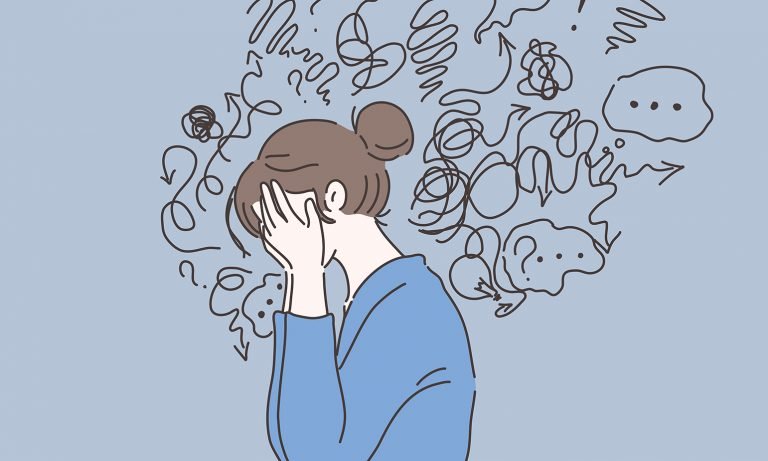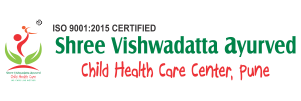Anxiety
Anxiety
In general, anxiety refers to a feeling of unease, that can be worry or fear, and it may be mild or severe. While most people tend to have some uneasiness or anxiety at different points in life, if these feelings become more constant and start affecting day to day life, it can lead to a serious disorder.
Anxiety is generally a symptom of many conditions like fear, stress and other conditions. A condition called generalized anxiety disorder (GAD) is a term given when there is no cause determined for anxiety.
In Ayurveda classics, anxiety is described as a symptom Chittodwega (restlessness of mind). It is further classified under a heading of mental disorders called ‘Unmada’.
As per Ayurveda, inappropriate dietary habits such as Adhvashana (Improper foods) and Vishamashana (Opposing foods) may cause Vishada (Mental lethargy) resulting out of Pragya-paradha (mistakes of the intellect/mind).
These mistakes are referred to as – lack of self-control over eating and greediness in food habits. Conditions of the mind such as Duhkha (Despair) – that is produced due to loss of beloved one or any financial or social loss; Bhaya (fear), Irshya (jealousy), Dainya (timidity), Lobha (greed), Chinta (worry), Krodha (anger) may lead to Vishada (Mental lethargy).

Causes Of Anxiety
The exact cause of generalized anxiety isn’t fully understood but there are a combination of several factors involved. These may be:
- An over activity in some areas of brain
- An imbalance of the neurotransmitters (brain chemicals) that control mood
- Hereditary
- Past history of any traumatic experience
- Lon term diseases, such as arthritis
- Drug or alcohol misuse
However, some people can have anxiety for no apparent reason
Symptoms Of Anxiety
Anxiety causes a marked change in the behavior and feelings. This can cause symptoms such as :
- Feeling restless
- Fear
- Inability in concentrating
- Irritability
These symptoms lead to avoidance of social contact.
Ayurvedic Treatment For Anxiety
The concept of Yuktivyparshraya Chikitsa refers to Aahar, Aushadha and Dravya Yojana to counteract vitiated vata and rajas. Additionally a satvic lifestyle with medication etc can help improve satva (Mind).
Ayurveda describes Satvajya (councelling), Daiva Vyapashraya Chikitsa (Worship Enchanting etc) that may be beneficial.
- Internal treatment
- Shaman chikitsa
- Satwavajay chikitsa
- Medhu rasayan chikitsa
- Manovaha strotas chikitsa
- Panchkarma
- Basti
- Snehan
- Swedan
- Shirodhara
- Shiropichu
- Abhyangam
- Udavartana
- Nasya
- Yoga and Pranayama
- Meditation
Diet Recommendations (Aahar)
A wholesome healthy diet is essential for mental health and happiness.
Use of madhur rasa, milk, ghee, sweet dishes and satvic food etc influences the pravar satva (Higher mental equilibrium).
Lifestyle Changes (Vihar)
Many yogasanas as exercise regimen are shown to be efficacious and helpful in reduction or management of stress.
Some asanas that are helpful are as following –
Lifestyle Changes (Vihar)
- Regularly indulge in activities that challenge the brain. These could be simple exercises or memory games. Over time, these help improve memory.
- Regularly practice yogasanas. Some specific ones that help improve memory and concentration are:
- It is a whole body exercise and is particularly helpful because it encourages you to breathe deeply and rhythmically
- The Cobra pose tones the abdomen by stretching it. It also helps alleviate stress and fatigue and also improves blood circulation, thereby reducing anxiety.
- Savasana has a regenerative effect on the mind and the body. It provides relief from any kind of stress and strain in few minutes. It is a good activity for managing restlessness, insecurity, frustration, anxiety, and fear
- Paroxysmal gamma waves produced in brain during the Bhramari Pranayama which is associated with positive thoughts, feelings of happiness and acts as a natural antidepressant

Cobra pose

Savasana

Paroxysmal gamma

